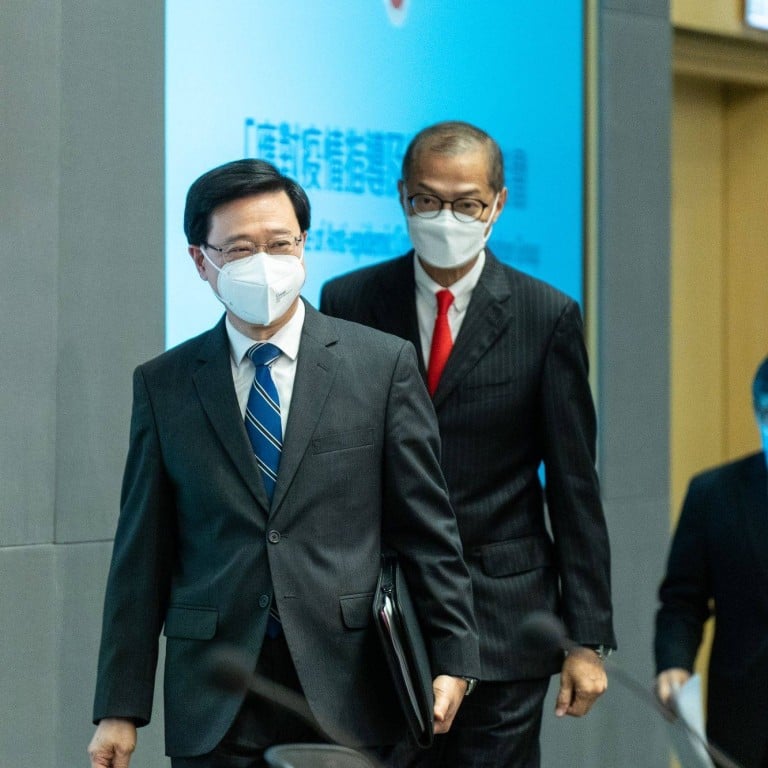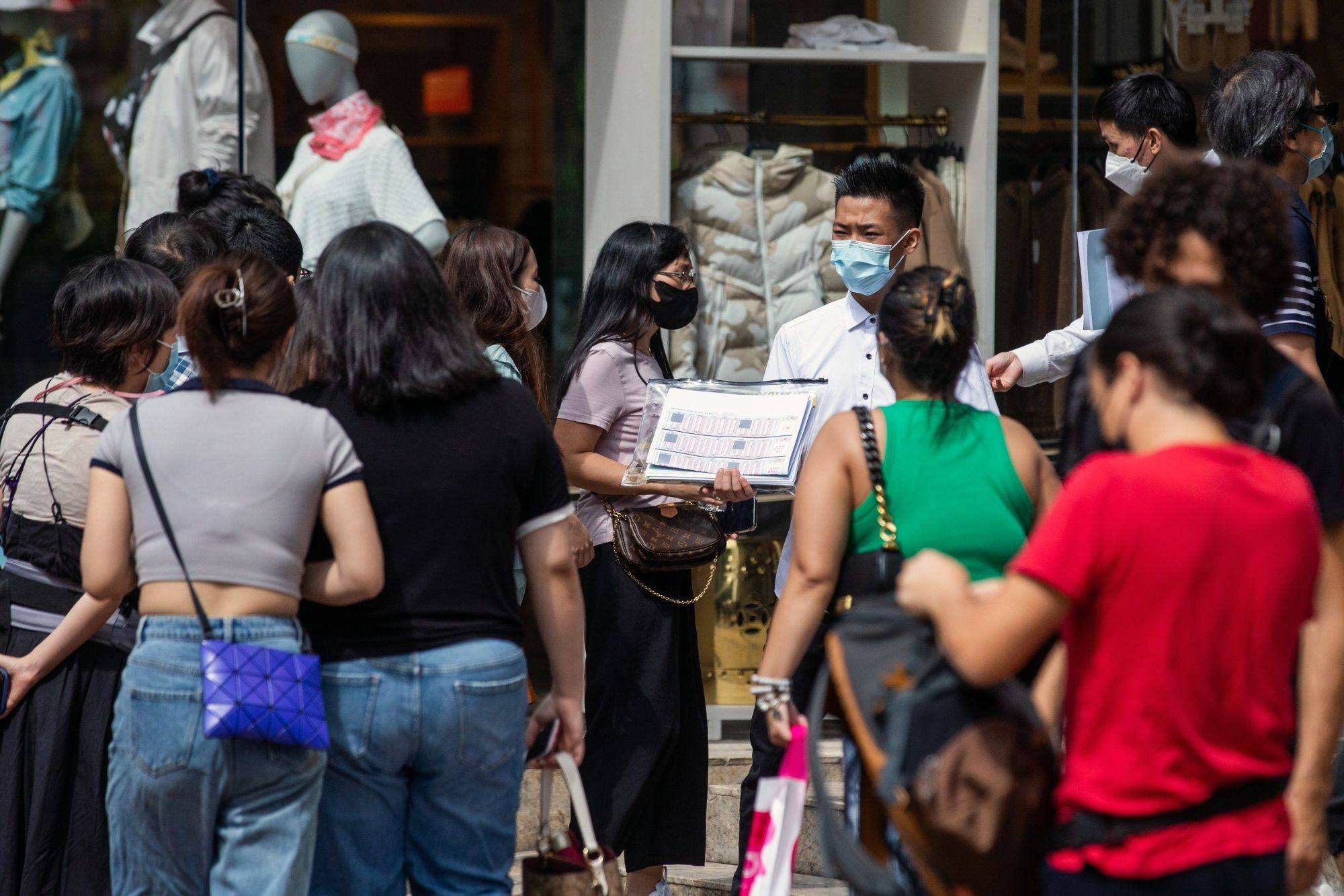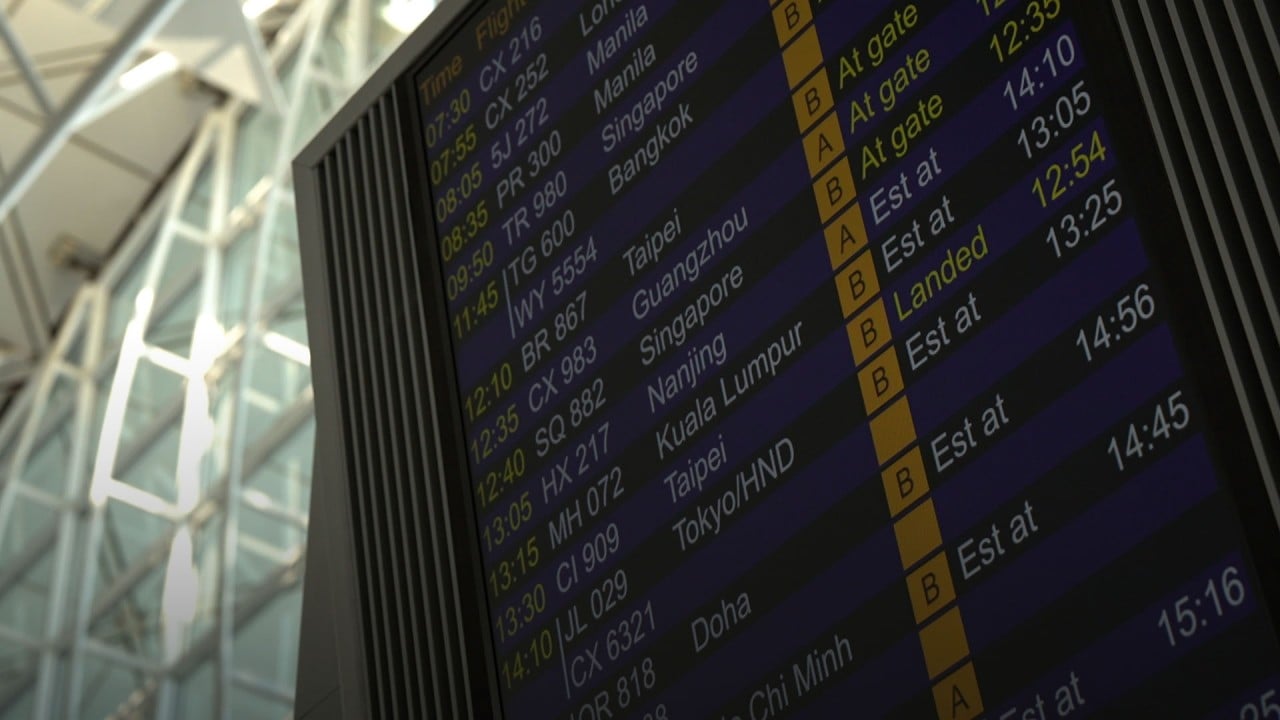
As Hong Kong cautiously reopens, John Lee must beware of missing the forest for the trees
- Just as making it easier for developers to force the sale of old buildings would dodge the wider issue of badly maintained ageing properties, Lee’s focus on infection numbers could obscure the bigger picture on Hong Kong’s reopening
Lee sees the need for caution against lifting the three days of medical surveillance for inbound travellers. He cites the increase in imported cases with travellers no longer subject to a week of compulsory hotel quarantine, and sees the proportion as “quite large”.
Imported cases had more than doubled to 300 cases a day, out of the consistently 4,000+ strong daily infection numbers. Whether this proportion seems “quite large” is subjective. Respiratory medicine specialist Leung Chi-chiu thought imported cases posed a low risk compared to local infections.
Inbound travellers have increased by 30 per cent and foreign travellers – although nowhere near pre-Covid normal levels – had risen by 80 per cent. Simply looking at imported cases to determine readiness seems inappropriate.
The government seems to have a habit of looking at numbers while neglecting other essential factors. Take, for example, something that has come out of the third antechamber meeting between officials and lawmakers this month.
The threshold is set at 80 per cent, so that someone holding that percentage of undivided shares in a lot can make an application to the Lands Tribunal for an order to sell it for redevelopment.
How tweaking compulsory purchase law may ease Hong Kong housing woes
The intention of the law, put into effect in 1999 with the threshold set at 90 per cent, is to encourage the redevelopment of dilapidated buildings by private developers. It is also supposed to provide a solution to the problem of old buildings that have not been properly repaired and maintained due to reasons including age, defective titles, untraceable owners or owners who demand unreasonable prices to be bought out.

But we must remind the government to not, in the interest of “efficiency”, oversimplify this issue as coming down to just the age of the buildings. It seems to assume that the older the building, the more unkept.
The government has a responsibility to take down buildings that are not properly maintained and which pose as public safety risks, and it should not defer this responsibility to private developers.
It is also seemingly assuming that the “holdouts” that deter developers from acquiring old buildings are unreasonable. Perhaps in many cases they are, but that does not excuse the government’s bulldozing of their private property rights and dismissal of their concerns. At what percentage of holdouts would demands become “reasonable”?
And what message would a 66 per cent threshold send? That the government cares not for its constitutional duty to protect private property ownership rights, and that in times of convenience, it is ready to trample over its residents for the interests of developers?
Alice Wu is a political consultant and a former associate director of the Asia Pacific Media Network at UCLA


